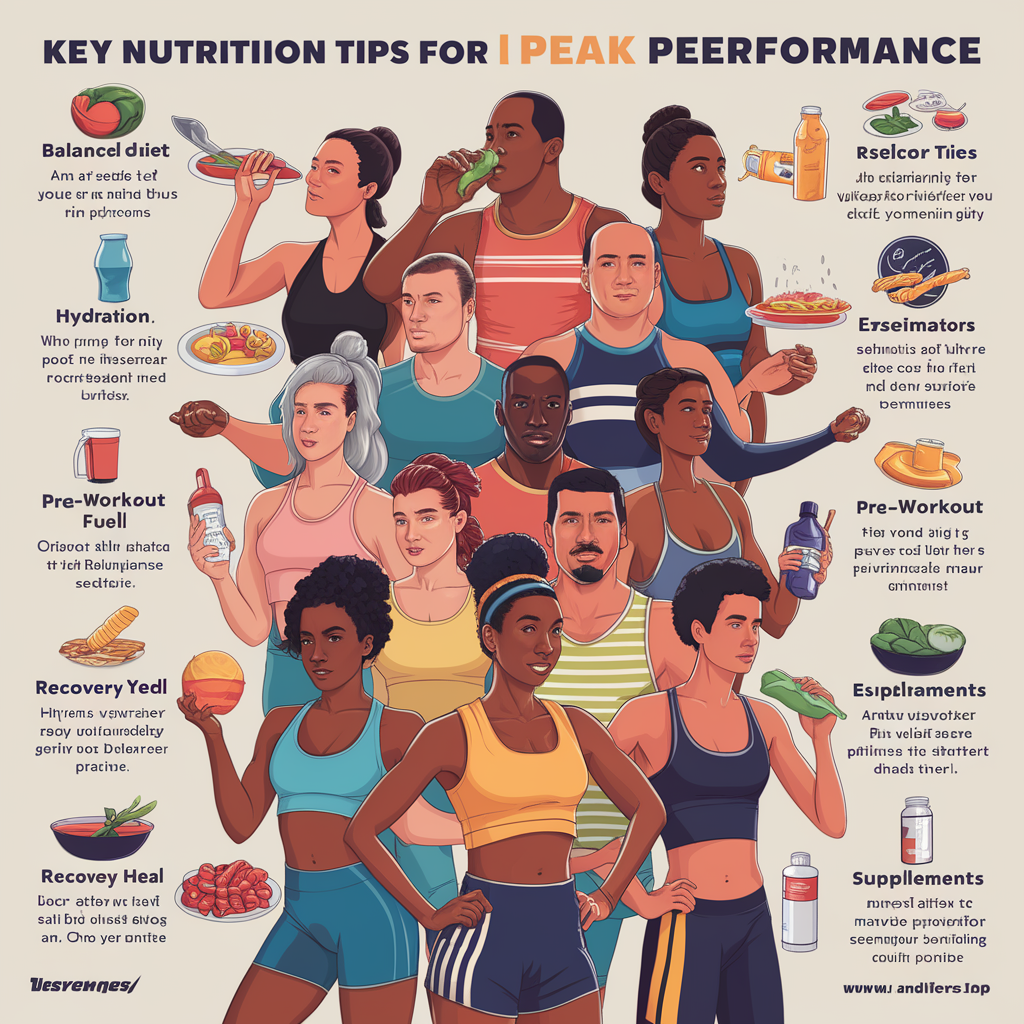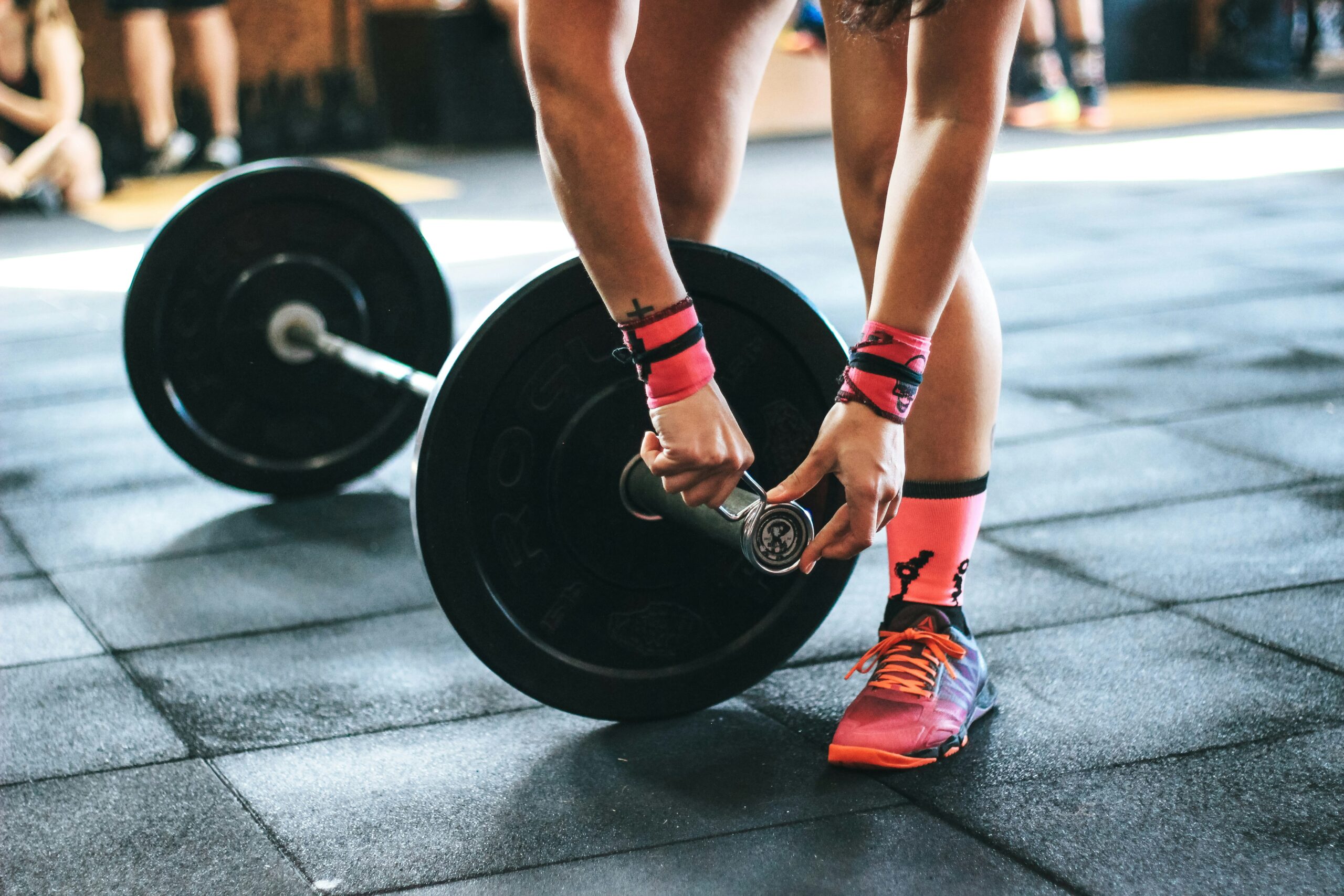Nutrition Tips for Peak Performance in Any Sport
When it comes to excelling in sports, most of us think about the training regimen, the sweat, the tears, and the occasional ice pack. But what often gets overshadowed is that old adage: “You are what you eat.” It sounds cliché, but the truth is, nutrition plays a crucial role in performance, recovery, and overall athletic success. So, let’s dive into some nutrition tips that can help you reach your peak—whether you’re sprinting down a track or mastering the art of yoga.
Understanding Your Body’s Needs
Before we can get into the nitty-gritty of what to eat, it’s vital to understand what your body needs. Every sport demands different energy levels, nutrient requirements, and hydration strategies. For instance, a marathon runner’s needs will differ significantly from those of a powerlifter. It struck me that this is where many athletes fall short; they don’t tailor their nutrition plans to their specific sport. So, let’s break it down.
Carbohydrates: The Fuel of Champions
Ah, carbohydrates—the beloved macronutrient that often gets a bad rap. They are your best friend when it comes to energy. Think of them as the gasoline in your engine. Without enough fuel, performance can sputter. Depending on your sport, carbs should make up a substantial portion of your diet. For endurance athletes, around 60-70% of daily calories should come from carbs. This fuels those long training sessions and helps delay fatigue.
Protein: The Builder
We all know protein is vital for muscle repair and growth. But how much do you need? It varies! General guidelines suggest about 1.2 to 2.0 grams of protein per kilogram of body weight for athletes. So, if you weigh 70 kg (about 154 lbs), you’re looking at roughly 84 to 140 grams of protein daily. I remember when I first learned this; it opened my eyes to why those post-workout shakes are more than just trendy—they’re essential!
Fats: The Unsung Hero
Now, let’s talk about fats. Yes, they’re often demonized in modern diets, but healthy fats are crucial for hormone production and muscle recovery. Aim for about 20-35% of your daily caloric intake from fats. Think avocados, nuts, and olive oil. Not only do they support long-term energy, but they also help with nutrient absorption. It’s like finding the perfect sidekick for your superhero meal.
Hydration: You Can’t Pour from an Empty Cup
Anyone who’s ever experienced dehydration knows it can be a game-changer— and not in a good way. Hydration is absolutely essential, especially for athletes. Dehydration can lead to decreased performance, cramps, and even heat-related illnesses. So, how do you ensure you’re staying hydrated? Here are some tips:
- Drink water regularly: Don’t wait until you’re thirsty. Make it a habit.
- Check your urine: A light yellow color usually indicates good hydration.
- Electrolytes matter: For long-duration sports, consider drinks with electrolytes to replenish what you lose through sweat.
It’s funny; I used to think I was invincible until I had my first experience with heat exhaustion. Let’s just say, I learned my lesson the hard way!
Meal Timing: The When Matters
It’s not just about what you eat; it’s also about when you eat. Timing your meals can greatly influence your performance. Here’s a simple breakdown:
Pre-Workout Nutrition
Eating the right foods before a workout can set you up for success. A meal rich in carbs and moderate in protein about 2-3 hours before your session can give you the energy boost you need. A banana with nut butter or oatmeal with berries work wonders. If you’re short on time, a quick snack like a granola bar or a piece of fruit 30 minutes before can suffice. (Just avoid anything too heavy to prevent that uncomfortable sloshy feeling!)
Post-Workout Nutrition
After working out, your body is primed for recovery. This is where protein and carbs play their magic. Aim to eat within 30 minutes to two hours post-exercise—this is often dubbed the “anabolic window.” A protein shake with a banana, or a chicken wrap with veggies, can help replenish glycogen stores and kickstart muscle repair. I’ll never forget the first time I tried a protein smoothie post-gym; it was like a delicious reward for my hard work!
Special Considerations: Vegetarian, Vegan, and Other Diets
With the rise of various dietary lifestyles, it’s essential to address how athletes can thrive on vegetarian or vegan diets. Contrary to popular belief, it’s absolutely possible to get all the necessary nutrients without meat. A good mix of legumes, grains, nuts, and seeds can provide ample protein along with essential amino acids.
For example, quinoa is a fantastic source of complete protein, and lentils are packed with iron—vital for oxygen transport in the body. However, it’s crucial for those on plant-based diets to pay attention to their B12 levels, as this vitamin is primarily found in animal products. Supplementation may be necessary!
Supplements: Yay or Nay?
Ah, supplements—the magical pills that promise to elevate performance. But do they really work? The truth is, while some can be beneficial, they should never replace whole foods. Here’s a quick rundown of popular supplements:
- Protein Powders: Useful for hitting protein goals, especially post-workout.
- Creatine: Known for enhancing strength and muscle mass. Some studies suggest it can improve performance in high-intensity activities.
- Omega-3s: Great for reducing inflammation and supporting heart health.
While I appreciate a good supplement, I often remind myself (and other athletes) that it’s not a magic bullet. Real food should always take precedence.
Listen to Your Body
One of the most overlooked aspects of nutrition is the simple idea of listening to your body. It’s astonishing how many of us ignore the signals our bodies send us. Feeling fatigued? You might need more calories or specific nutrients. Sore joints? Perhaps it’s time to focus on anti-inflammatory foods like turmeric or ginger. During my years of training, I’ve learned that tuning in to how I feel after particular meals helps me adapt my diet for optimal performance.
Trial and Error
Navigating nutrition can feel like a confusing maze, and it often requires some trial and error. What works for one athlete might not work for another. For instance, I once tried a high-fiber breakfast before a race, thinking it would keep me energized. Let’s just say that was a mistake I won’t be repeating anytime soon! (Lesson learned: Fiber and racing don’t always mix well.)
Practical Tips for Everyday Nutrition
Now that we’ve covered the essentials, let’s delve into some practical tips that you can implement into your daily routine.
Meal Prep for Success
One of the best ways to ensure you’re eating right is to plan ahead. Meal prepping can save you time and keep you from making less-than-ideal food choices. Set aside a few hours on the weekend to prepare meals for the week. Cook up some lean proteins, roast a batch of vegetables, and portion out healthy snacks. You’ll thank yourself later!
Keep Healthy Snacks Handy
Life gets busy, and when hunger strikes, having healthy snacks on hand can save you from grabbing that bag of chips. Think nuts, yogurt, fresh fruit, or even homemade energy bars. I can’t stress enough the importance of being prepared; those 3 PM cravings can be relentless!
Stay Informed
Nutrition science is always evolving. Staying informed about the latest research can help you make better choices. Follow reputable nutritionists, read relevant articles, and don’t hesitate to ask questions. I remember when I first started diving deep into sports nutrition; it was like opening a treasure chest of knowledge that changed the way I viewed my diet.
Wrap Up: Your Unique Journey
In the end, remember that nutrition is a personal journey. There is no one-size-fits-all approach. What works wonders for one athlete might not even scratch the surface for another. The keys to peak performance are consistency, adaptability, and a willingness to learn. Nutrition isn’t just about the food on your plate; it’s about fueling your passion, supporting your goals, and enhancing your life as an athlete.
So, whether you’re a weekend warrior or a professional athlete, take these tips to heart and experiment with your nutrition. It’s one of the most powerful tools you have in your athletic arsenal. And who knows? You might just find that perfect blend of foods that makes you feel like a superhero on the field or court. Now, go grab that banana and nut butter (or whatever your go-to snack is), and get ready to crush your next workout!







